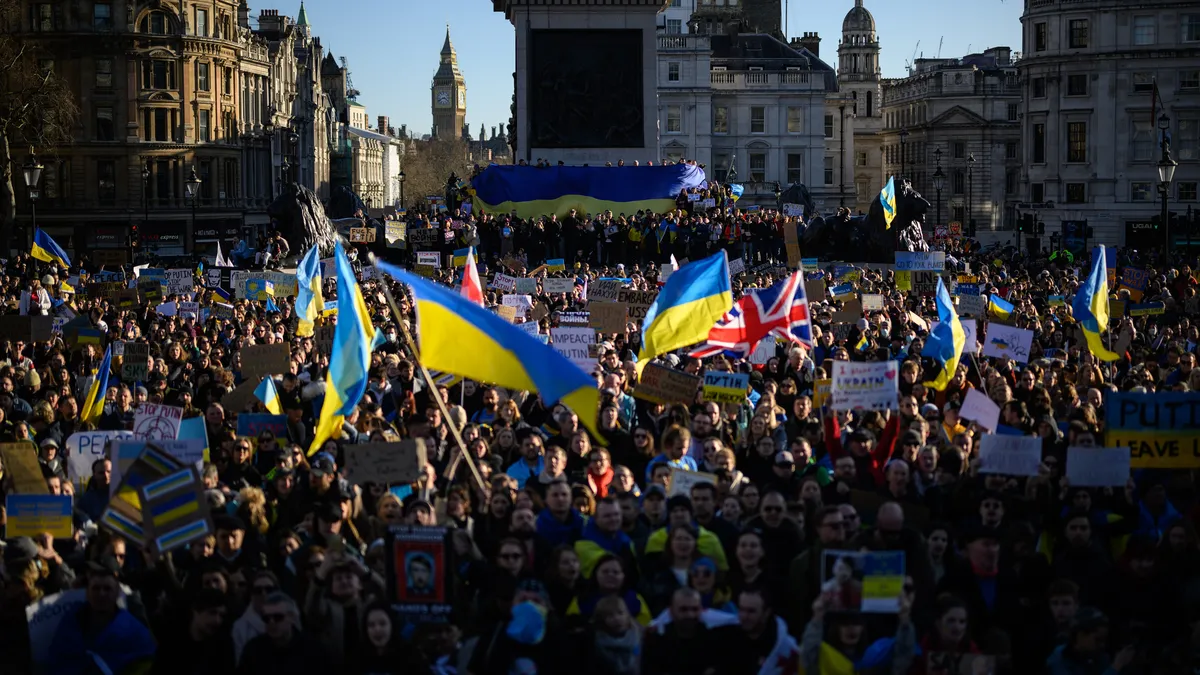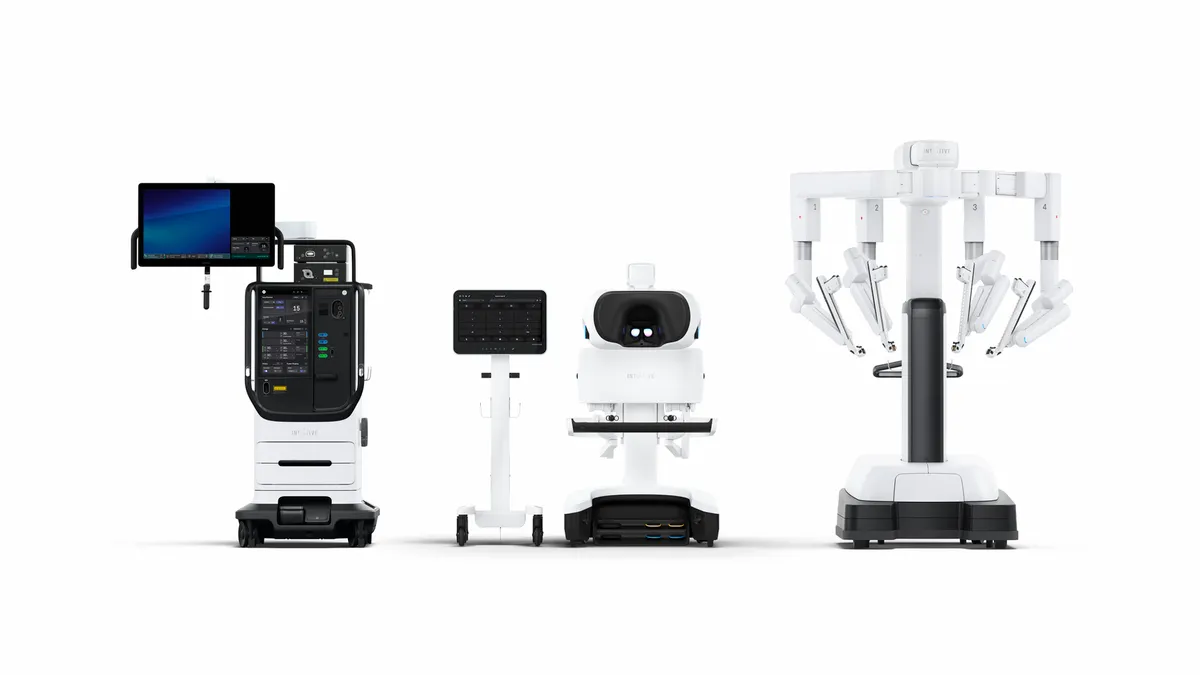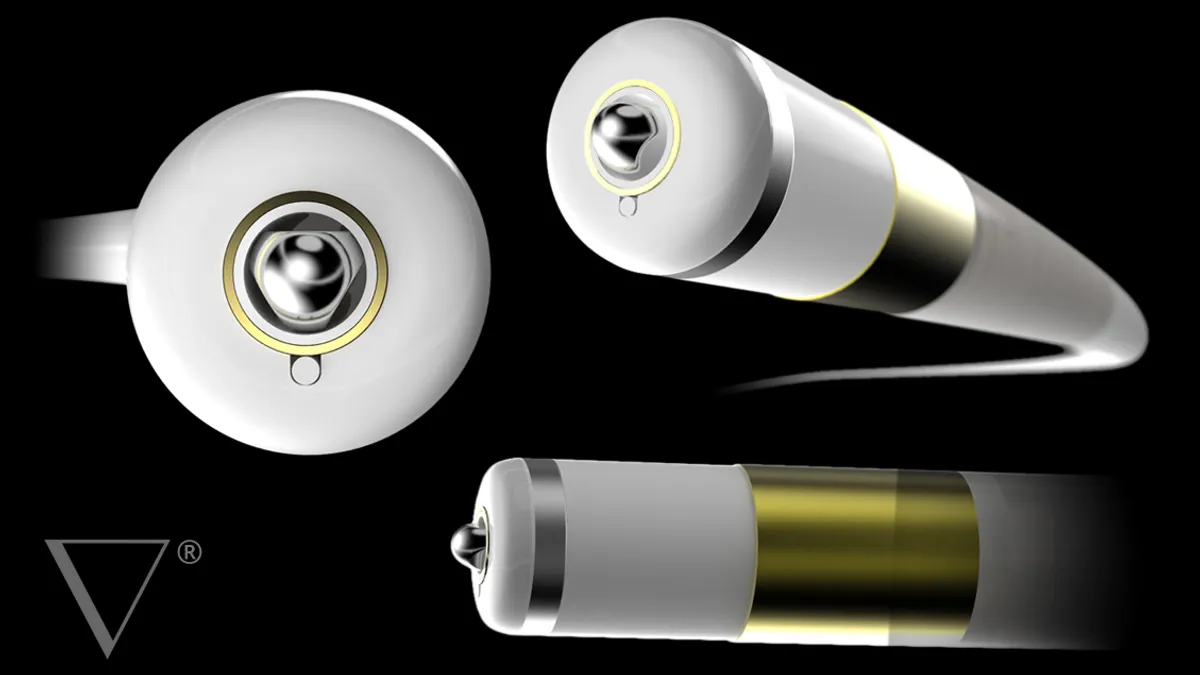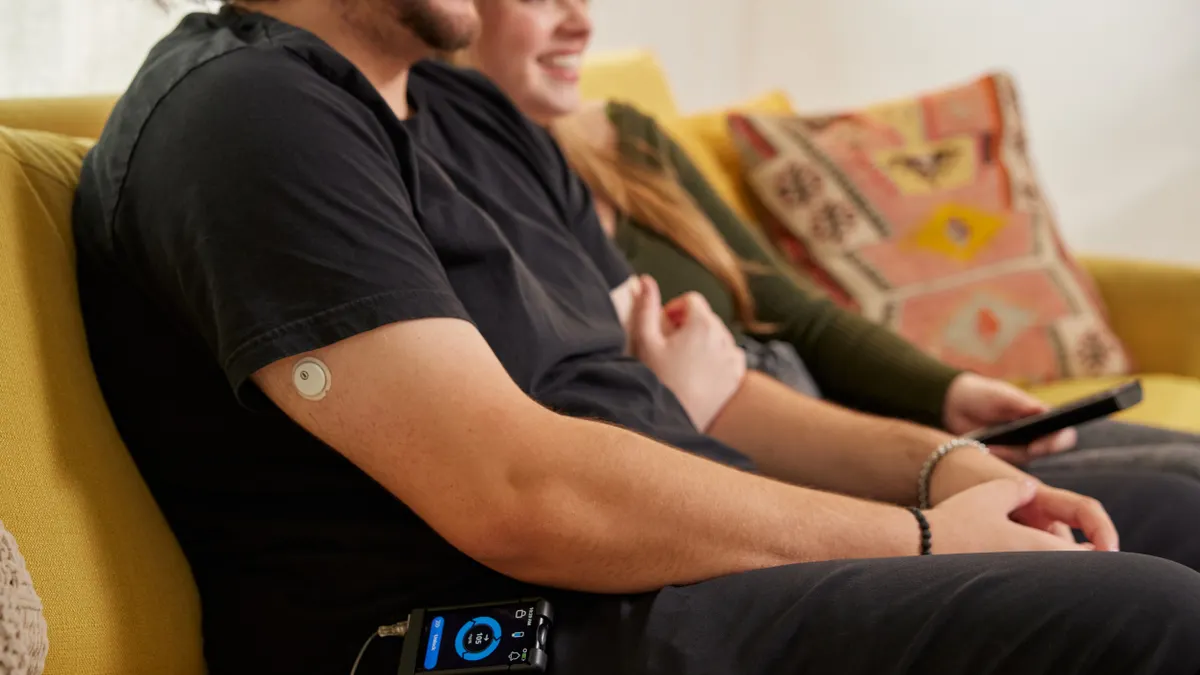The medical device industry is voicing and lending support to the people of Ukraine amid the war with Russia.
While falling short of a call to action by biotech leaders — who have vowed to break ties with Russian companies over Russia's invasion of Ukraine —medtechs are condemning Russian President Vladimir Putin's aggression in the country.
AdvaMed said in a statement late last week that it condemned "the actions that have resulted in such devastation and loss of human life in Ukraine" and its member companies "are committed to mobilizing our industry to help those who are suffering as a result of this invasion."
The industry's top lobby said it is working with the U.S. government and non-governmental organizations to assess the need for medical supplies in Ukraine. The group has created a resource list on its website to help coordinate the distribution of critical items as part of the humanitarian aid effort.
Siemens Healthineers said in an emailed statement to MedTech Dive that the company "strongly condemns the invasion by Russian forces of Ukraine, a sovereign European nation, in clear violation of international law," adding that it is "moved by the courage of the Ukrainian people."
The fighting that broke out last month has had an impact on the normal supply chain. A spokesperson for MedTech Europe said in an emailed statement that the "normal logistics chain towards Ukraine are being disrupted since the beginning of the crisis, with main routes being cut."
"As the medical technology industry, we are working together with civil defense mechanisms to ensure insofar as possible the availability of medical supplies," the group stated.
The MedTech Europe spokesperson said that the group is still assessing the impact of sanctions on the supply and delivery of medical devices and technologies.
"Though medical devices themselves are mostly exempted from sanctions, we expect that the overall disruption to trade, finance and logistics is all negatively affecting the supply of medical technologies," the group stated.
Individual medical device and diagnostics companies are also stepping up to help refugees and civilians impacted by the Russian invasion of Ukraine.
Philips and its non-profit organization are providing support to the Ukrainian people including a 24-bed mobile hospital equipped with patient monitors, electrocardiographs and handheld diagnostic ultrasound devices.
Roche last week announced an initial donation of essential medicines to Ukraine, including 150,000 packages of the antibiotic Rocephin. At the same time, Roche said it's also making "every effort" to ensure a continued supply of critical medicines and diagnostics to Russia.
In a LinkedIn post on Friday, Boston Scientific said the company is expressing "compassion and grief" for the lives lost and others who are suffering because of the war in Ukraine.
"Our priority is the safety and wellbeing of our people, and we are doing what we can to support this humanitarian crisis," the company said. "We are responding by working to keep colleagues in the region safe, to support ongoing access to health care and donating to the International Red Cross through the Boston Scientific Foundation Europe. We will also match employee donations to designated organizations supporting relief efforts."
Johnson & Johnson also took to LinkedIn to comment on the crisis, stating that the company "comes together with the world in support of Ukraine. We are deeply concerned by the ongoing conflict, and we stand with all the innocent people affected."
J&J, which is made up of pharmaceutical, medical device and, for now, consumer health units, said it is helping employees in the region, including providing lodging and financial services. It's also donating $5 million to support the work of the International Rescue Committee, International Federation Red Cross and Red Crescent to provide humanitarian support for refugees in the border countries, among other initiatives.
"We will continue to support those most directly impacted and are committed to providing access to our essential medical products in the countries where we operate, in compliance with current international sanctions," the healthcare company said in the post.
Siemens Healthineers in its statement cited Article 25 of the Universal Declaration of Human Rights, which includes the right to medical care.
Still, other medtechs have taken a different tack in response to Russia's invasion by cutting off medical supplies to that country.
Orthopaedic medical device maker Conformis said last week it was "suspending all distribution operations to Russia and any Russian-based entities" for its products, and that "until further notice, the company will no longer pursue future business development opportunities in Russia."
Meanwhile, Stryker said in an emailed statement that the ortho device maker will continue to "deliver products and serve our customers."
The company, which has a limited presence in Russia and no manufacturing operations, said it's still evaluating how international sanctions will impact customers and the supply chain.
A Stryker spokesperson said that the company is "monitoring the invasion of Ukraine closely and at this time we are not experiencing any substantial impact in our ability to deliver products to customers."
Economic impact
Stifel analysts wrote in a recent report that large-cap med techs are "minimally exposed" to the impact of Russia's invasion of Ukraine, including international sanctions. The analysts said that Russia makes up about 1% or less of revenues for the group.
"While the exact impact of Russian sanctions remains unclear as it pertains to the medical device industry's ability to sell or distribute products in Russia, the relatively modest exposure suggests that any impact would be manageable," the Stifel analysts wrote.
Large Cap MedTech Revenue Exposure to the Russia-Ukraine Conflict
| Company | Exposure |
|---|---|
| Abbott Laboratories | Russia accounts for less than 2% of Abbott’s sales. EPD is Abbott's largest Russian business line, accounting for approximately 75% of company Russian sales. |
| Baxter International | Combined sales for Russia / Ukraine represent less than 0.5% for total legacy Baxter (ex-Hill-Rom) in 2021. |
| Becton Dickinson | Immaterial, "well-below" 1%. |
| Boston Scientific | While Russia has been cited as one of Boston's emerging market growth opportunities, the current revenue is immaterial. |
| Intuitive Surgical | Minimal exposure |
| Johnson & Johnson | Around 1% of 2021 sales |
| Masimo | Less than 0.5% of total company 2021 revenue. |
| Medtronic | Russia and Ukraine represented less than 1% of 2021 sales. |
| Stryker | Russia was ~0.2% of total Stryker sales in 2021. |
| Zimmer Biomet | Russia is less than 1% of revenue. |
SOURCE: Stifel, "company reports and presentations"
Currently, the financial impact of the war in Ukraine and Russian economic sanctions appear to be having little impact on medical device manufacturers.
"We are closely monitoring the situation in Ukraine in order to proactively address any potential impact to both BD plants and/or our external suppliers in the region, particularly as it applies to natural gas supply," said a Becton Dickinson spokesperson in an emailed statement, noting that BD does not have any manufacturing facilities in Ukraine or Russia and that revenue from both countries was immaterial to the company in fiscal year 2021.
The company has confirmed gas reserves of 30-plus days in a limited number of countries where the company uses Russian gas.
"As part of our ongoing risk mitigation and proactive supply chain planning efforts, we are working closely with key suppliers that have manufacturing sites in countries that do have dependency on Russian gas to ensure adequate contingency plans are in place in the event of supply disruptions," the spokesperson said.
The company official added that "potential sanctions that impact Russian airlines may remove notable air capacity from an already constrained global transportation market and create air freight delays across the region."
A Siemens spokesperson said the medtech is complying with all relevant and applicable export control requirements and sanctions laws, and while the sanctions "do not target the healthcare business directly," the company does expect "an indirect negative impact on our business."
A spokesperson for Intuitive Surgical said in an emailed statement that the company is monitoring "events in Ukraine with concern for those who are impacted by the conflict."
"While Intuitive's presence in the region is small, we are working through the Intuitive Foundation to establish ways for Intuitive employees to help," the company said. "Intuitive will continue to comply with applicable laws, including sanctions against Russia."
Russia does offer medtechs a solid business opportunity, with a U.S. government commercial guide calling the market "very attractive" for U.S. companies.
In an October post, the International Trade Administration, which is part of the U.S. Department of Commerce, projected the medical device market in Russia to be approximately $5 billion in 2020, roughly in line with 2018 and 2019. According to the report, diagnostic imaging makes up about 20% of the market, consumables 15% and orthopaedic and prosthetics at just over 9%.
"The Russian medical device market is very attractive for U.S. companies and is one of the largest in central and eastern Europe," the report said. "Despite the Russian Government's efforts to develop a robust medical technology industry, public medical facilities prefer to buy medical devices from foreign manufacturers if they have the choice and means."























